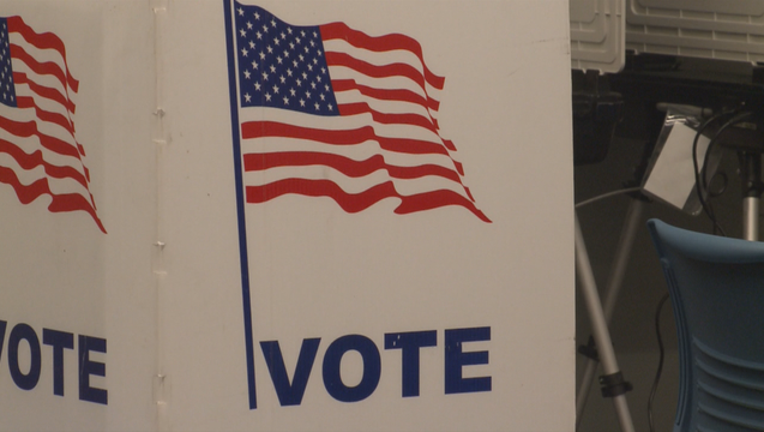Judge weighs whether Georgia must switch to paper ballots

ATLANTA (AP) - A federal judge who's considering whether Georgia should have to switch from electronic voting machines to paper ballots for the November election called the situation "a catch-22."
Voting integrity groups and individuals sued state and county election officials, arguing that the touchscreen voting machines Georgia has used since 2002 are vulnerable to hacking and provide no way to confirm that votes have been recorded correctly because they don't produce a paper trail.
They've asked U.S. District Judge Amy Totenberg to order Secretary of State Brian Kemp, the Republican candidate for governor, to implement the use of paper ballots for the Nov. 6 midterm elections.
But lawyers for the state argue that making the switch would be difficult, costly and would create chaos. Early voting is set to begin Oct. 15, and training for poll workers has already begun in many counties, they said.
Totenberg heard arguments Wednesday from both sides and said she hopes to have a decision by Friday, or Monday at the latest.
Five states, along with more than 300 counties in eight other states, exclusively use touchscreen voting machines that provide no paper record, according to Verified Voting, a nonprofit group focused on ensuring the accuracy of elections.
"Georgia has been frozen in time for the last 16 years and, as a result, has been left behind by virtually every other state," said David Cross, a lawyer for a group of individuals challenging the voting machines.
The constitutional right to vote includes not only the right to cast a vote but also the right to have that vote counted accurately, he said. "The right to vote in the state of Georgia is illusory," he added.
Georgia has repeatedly ignored warnings from cybersecurity experts and federal officials that voting machines without an auditable paper trail are not secure, lawyers for those seeking paper ballots said.
Georgia already uses paper ballots counted by optical scanners for absentee voting and for provisional ballots on election day, so the technology and protocols are already in place and simply need to be scaled up, they argued.
But Georgia doesn't have enough optical scanners and likely can't get enough in time, said lawyer John Salter, who represents Kemp and other state officials. He also argued that a safe and secure election cannot be guaranteed by using paper ballots.
"These are not the holy grail of voting integrity," Salter said.
Kemp has insisted a change can't be made before the November election in which he faces Democrat Stacey Abrams, the former state House minority leader who's trying to become the country's first black, female governor. Kemp has called on companies for proposals to implement new machines that produce verifiable paper records in time for the next presidential election in 2020.
Alex Halderman, a University of Michigan computer science and engineering professor, testified that a decade ago the main threats to election systems were dishonest insiders or candidates. But, he said, "everything changed in 2016," when threats of interference by a foreign power became much more serious than had previously been considered.
Election results could be altered without an attacker having physical access to a voting machine and without machines being connected to the internet, Halderman said. An attack could access the central administration system, allowing malware to be spread to many machines.
Paper ballots or a machine-issued paper record that a voter can check are the most secure methods, he said.
"I don't think there's anything Georgia can do to reasonably secure the paperless touchscreen machines that are in use today," Halderman said.
State elections director Chris Harvey testified that after the lawsuit was filed, the secretary of state's office re-examined the touchscreen voting system and found that the machines recorded each vote as cast. He also listed ways that paper ballots can be manipulated, including ballots that are lost, stolen or intentionally spoiled.
In large counties where there can be hundreds of different possible ballots, having to have all of them on hand at early voting sites would be unwieldy and would likely lead to a reduction in the number of early voting locations, Harvey said. Voters may also be confused by the new format and may take longer to vote, leading to long lines that could discourage voters, he said.
The issues raised in the lawsuit are big and affect voting results and the credibility of the system, Totenberg said, adding that a lot of nationally respected organizations have raised concern about electronic voting machines with no paper record. But the judge also expressed concern about the logistics of switching to paper ballots so quickly and the possibility of long lines or confusion.
"This is a catch-22," she said, later adding, "I'm concerned that we're here at the 11th hour."

